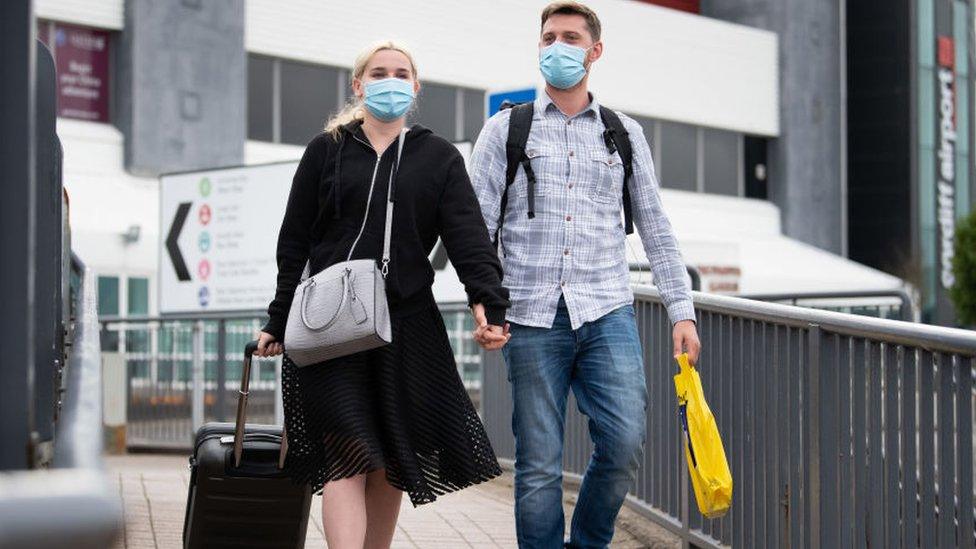Covid staycation slump for Wales' holiday firms
- Published
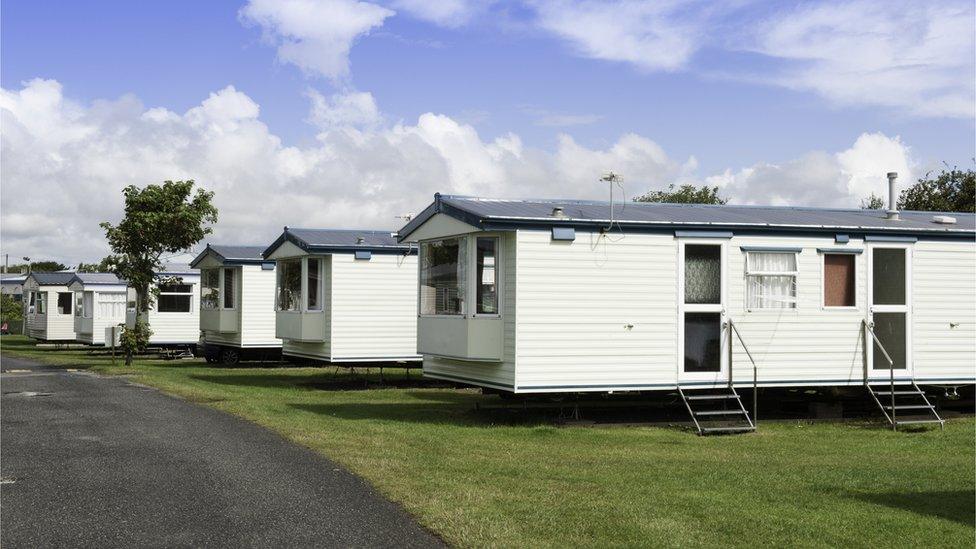
Self-catered accommodation has taken a big hit this years, says Jim Jones from North Wales Tourism
Demand for staycations in Wales is "dire", with the cost of living pushing businesses to the brink, tourism bosses have said.
Industry body North Wales Tourism said self-catering accommodation has been hit especially hard.
This is despite worries of flight cancellations and possible rail strikes making airport access tricky.
The Welsh government said it had pumped tens of millions of pounds into the sector.
Flight cancellations and airport delays are expected to continue throughout the summer. British Airways and EasyJet have already taken about 40,000 flights off their schedules.
Network Rail staff are due to walk out on 27 July and on 18 and 20 August over pay and conditions, with train drivers set to strike on 30 July.
But all that has not translated into holidaymakers staying put.
North Wales Tourism boss Jim Jones said there had been high hopes a profitable summer would get businesses back in pre-pandemic shape after a boost in 2021 when people shied away from foreign holidays during the pandemic.
"It's kind of unprecedented because it was really busy in 2021 but this year is very strange, very quiet in terms of what we're used to."
The biggest problem is the cost of living with the price of fuel making driving expensive and Mr Jones said businesses anxious for a good season were working to stay open and maintain staffing levels.
He added: "The situation is dire, we were hoping for lots more support once we came out of the pandemic from the Welsh government, that hasn't been forthcoming. So businesses are kind of left to their own devices."
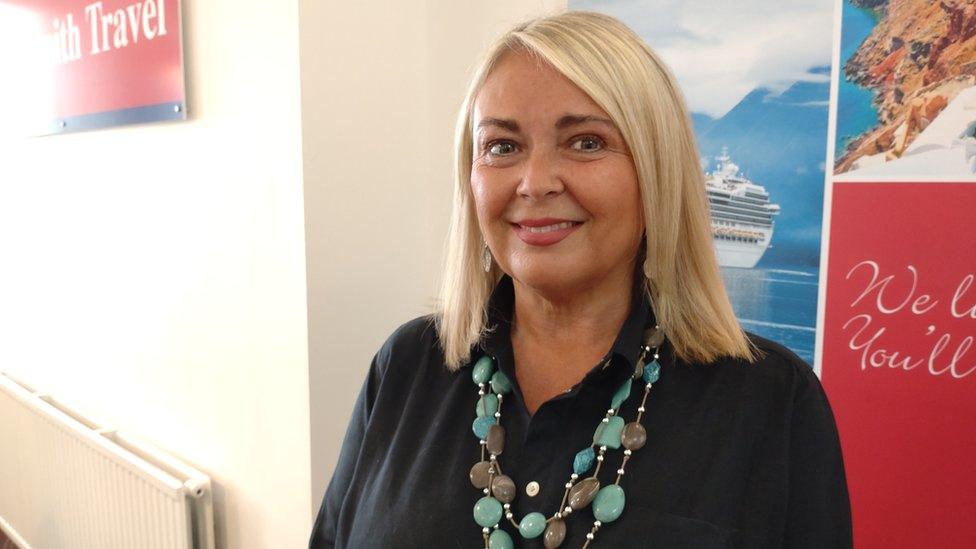
Suzanne Cumpston says people want the exotic holidays they have missed out on
Suzanne Cumpston of Cowbridge's Sam Smith Travel said Wales had lots to offer but there was "a huge appetite" for going abroad.
While some were holding back because of costs, she said the firm had not seen a sales dip.
"In the pandemic there was a huge peak of demand for domestic tourism within the UK, however, prices have escalated and I think there is more of a demand to go back overseas," Ms Cumpston said.
Going to north Wales or Spain for a week could cost you about the same, she added.

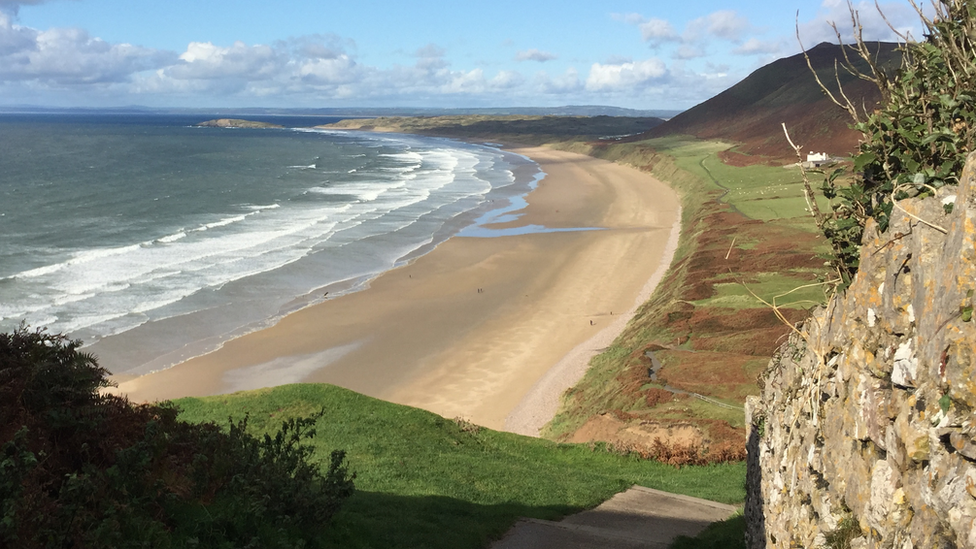
One visitor to Rhossili Bay was surprised about how few people were there
'It's stunning here, it's amazing there are so few people'
Jodie Scott and daughter Chloe have been at their caravan at Rhossili Bay, Gower, all week.
Ms Scott said: "Given how stunning it is we always say it's amazing that there's very few people there."
Nannie Schoeren, who was visiting Wales from the Netherlands for the first time, said: "We just looked in our guide and I thought, 'hey, this is the nicest place to be'. And it is!"
Deborah Smith visits her holiday home in nearby Three Cliffs Bay for two weeks every year.
"It's very very popular now with French people, German people, Dutch people," she said.
"We've spoken to loads this week who are all coming over here from abroad so the word's out there."

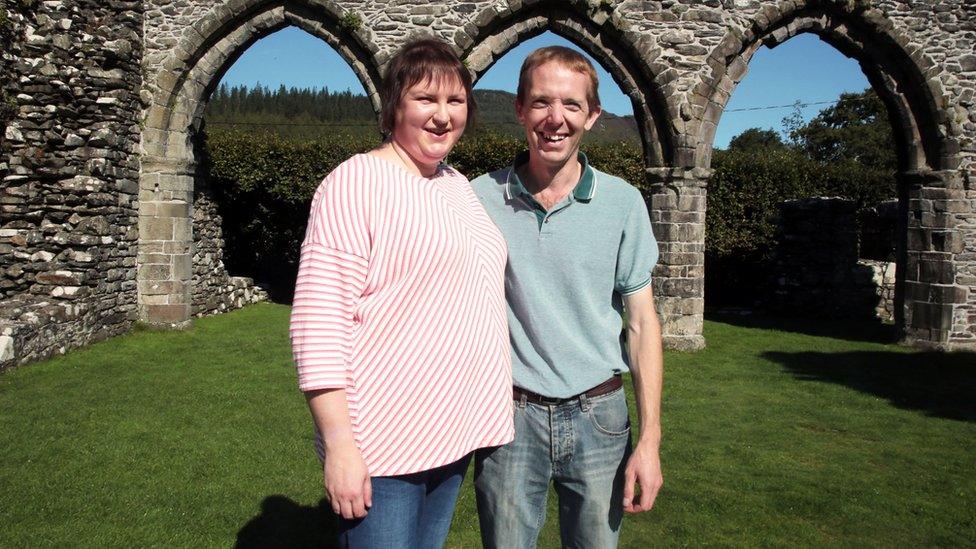
The owners of Vanner Caravan, Camping and Holiday Cottages say they've relied on last minute bookings
Delyth Vaughan Rowlands said her holiday business was usually booked up early, but she has only just filled August.
The owner of Vanner Caravan, Camping and Holiday Cottages in Dolgellau, Gwynedd, said: "This year is a perfect storm. There's much more competition as the market is saturated."
What is the climate's impact on the rail network?
She added it was hard to compete with all-inclusive offers abroad.
"It's much more challenging as we get out of the Covid pandemic, with the cost-of-living crisis and the current political instability and the impact it has on the economy."
Eirian Ifan has worked in hospitality for 28 years and owns Llannerch Goch holiday cottages in Capel Garmon, Conwy Valley.
She has had an "unusual" season affected by people going abroad, saying she has "never seen anything like it".
Instead of being fully booked, last-minute bookings were keeping them ticking them over while the normally busy months of September and October were mostly free, so she has been adapting to get more guests, offering cheaper and shorter stays and allowing dogs.
"People are concerned about the cost of living and others are going abroad," she said.
"There's also a lot more cottages, glamping pods, yurts and huts in the market at the moment."
'Not enough staff'
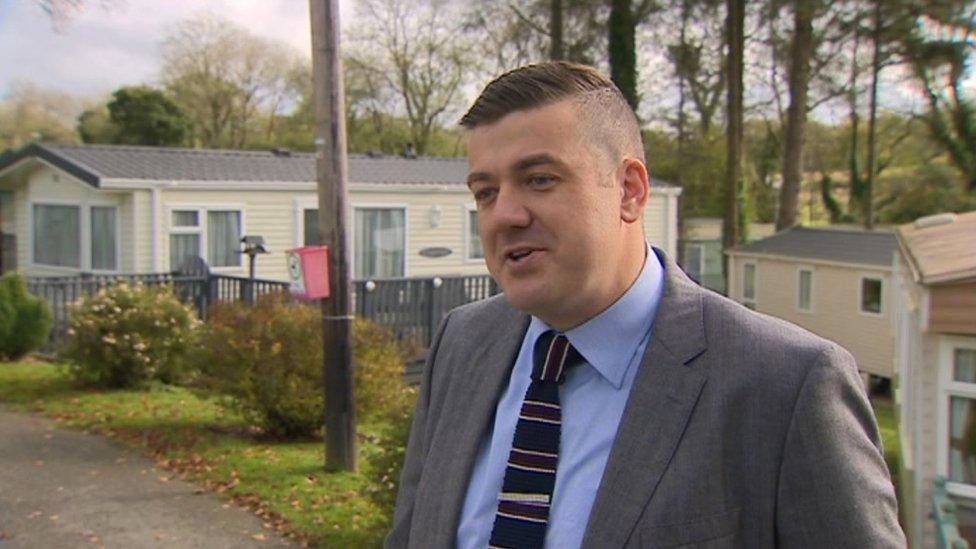
Thomas Scarrott says there "was always going to be gaps" after Covid
Vale Holiday Parks owner Thomas Scarrott, said the business, based in Aberystwyth, Ceredigion, had struggled to fill peak seasons.
Getting people to stay at one of the firm's 10 parks instead of going abroad was challenging.
"After the lockdown we were pretty much at 100% occupancy and now we are looking at around 70-75%," he said, which included a lot of last-minute bookings from people who had been turned away at airports.
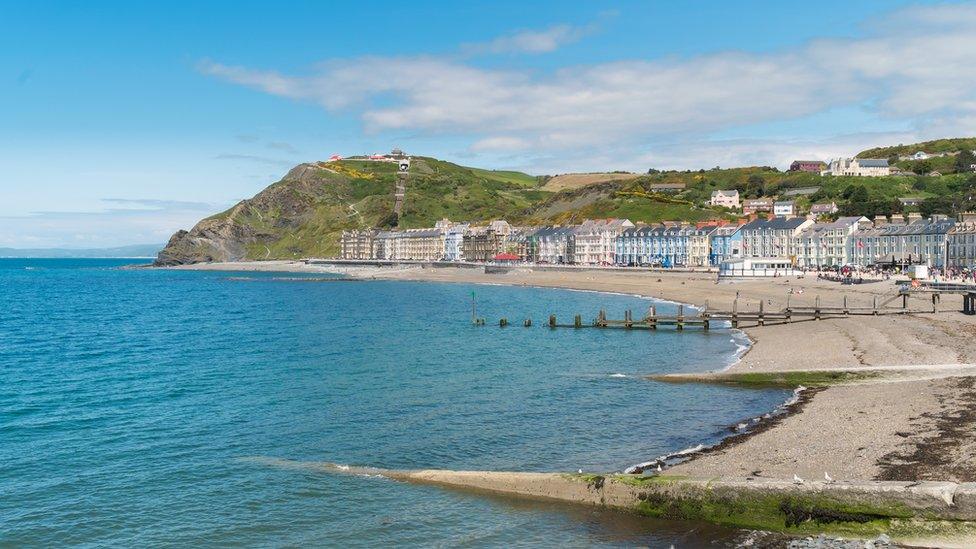
Beach towns like Aberystwyth are full of "staff wanted" signs, says park owner Thomas Scarott
Getting staff was difficult, said Mr Scarrott, as many re-trained during the pandemic, leaving him with "so many vacancies across our parks, especially in the hospitality part of our business".
The Welsh government said it was working with the sector to ensure summer was successful as part of its plan to achieve sustainable growth for tourism.
It said it appreciated inflation, operating costs and staffing challenges made it a worrying time for businesses and was providing a £116m package meaning the sector would get 50% business rate relief in 2022-23.
A spokesman added: "However, the main support levers rest with UK ministers. We again call on the UK government to do far more to help businesses, individuals, and communities with the cost-of-living crisis."
The UK government has been asked to comment.

WONDERS OF THE CELTIC DEEP: Encounter mythical coasts and extraordinary creatures
IOLO: A WILD LIFE: Iolo delves into the archives from the past 25 years

- Published8 February 2022
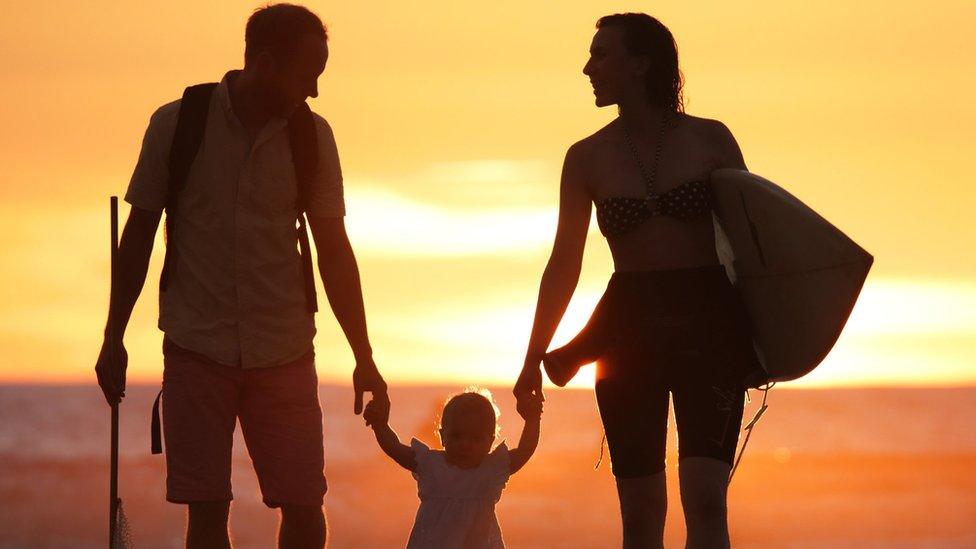
- Published14 July 2022
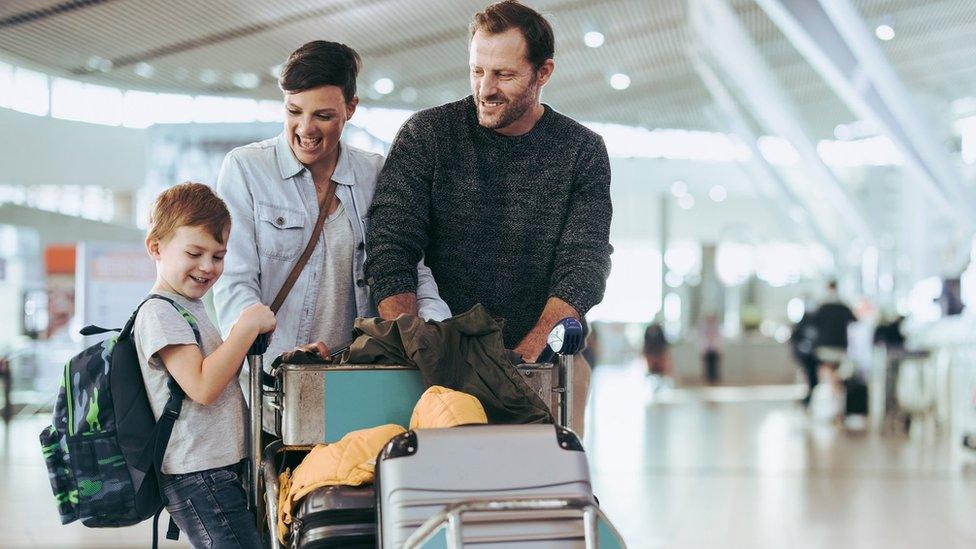
- Published20 July 2022
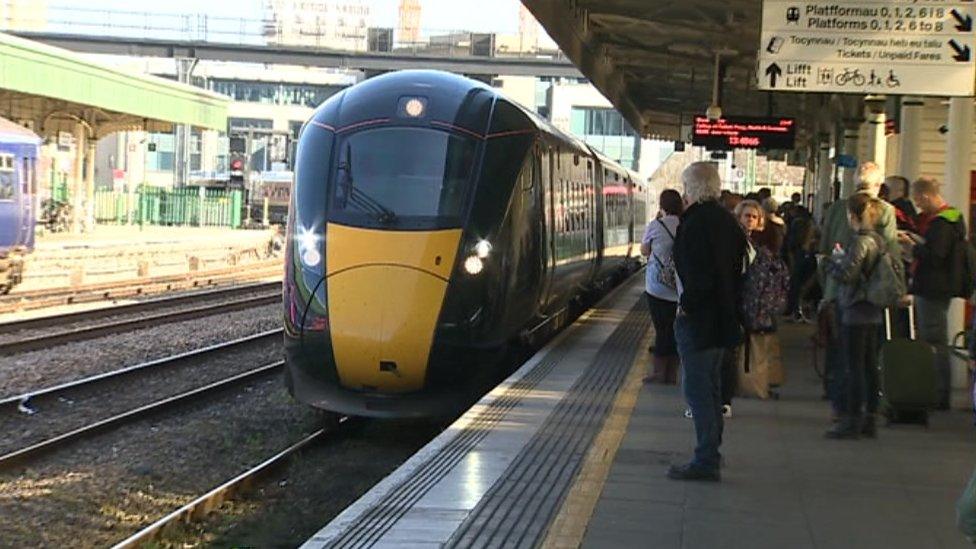
- Published20 July 2022
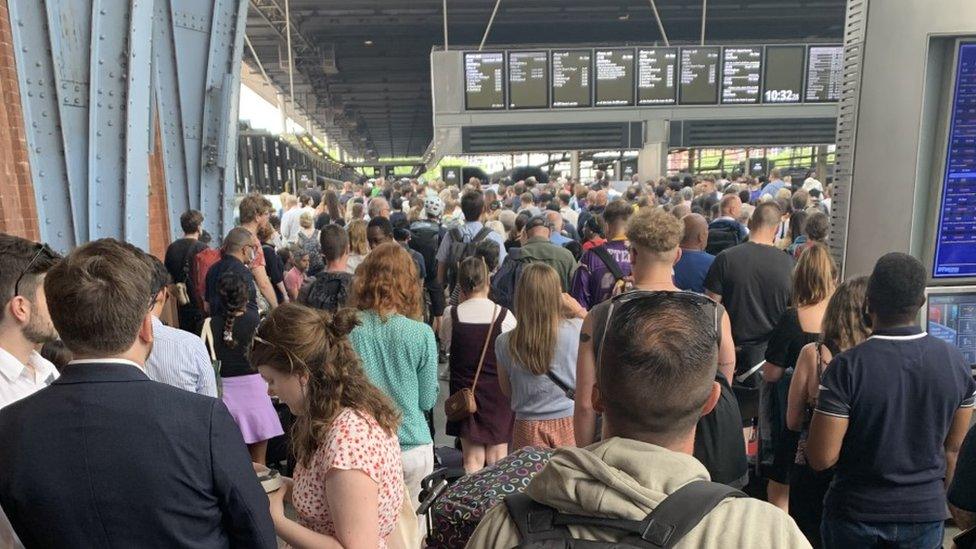
- Published8 April 2022
